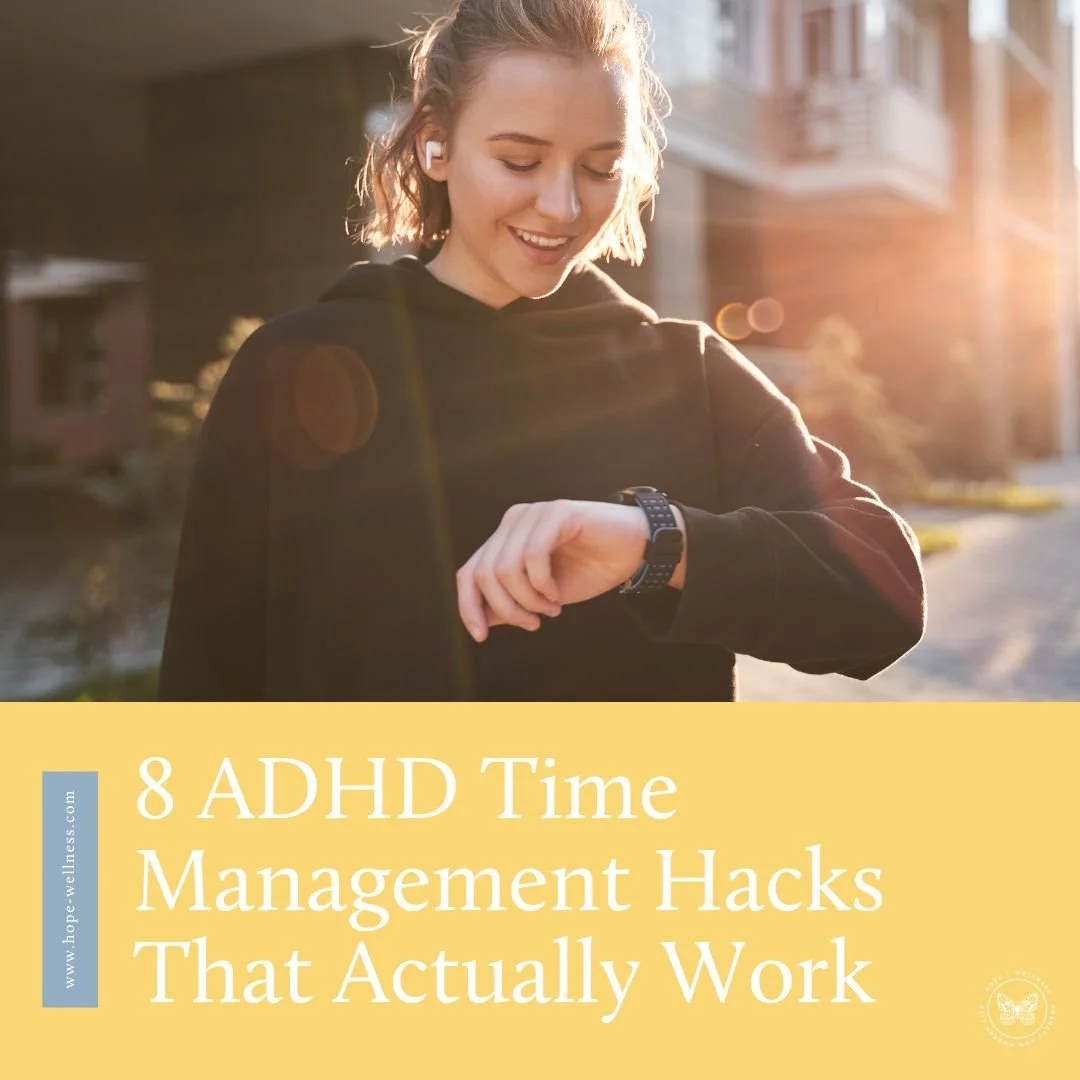7 Lesser Known Signs of ADHD
Do you ever have problems with attention and focus? We all go through periods where we have a hard time concentrating - like when we have a big life event or when we’re unwell. However, some people experience difficulty with attention and focus that’s more than just the occasional annoyance. Attention-deficit/hyperactivity disorder (ADHD) is a diagnosis we hear about all the time, but there is more than one way to have ADHD. The symptoms of ADHD present themselves differently in different folks, so if you weren’t diagnosed as a youngster in school you’re not alone.
It’s common for ADHD to be diagnosed in school-age children, but adults can be diagnosed with it as well, and sometimes the symptoms present differently in adults than in children. It’s also important to note that women and minorities are often underdiagnosed with ADHD, whereas white men are typically diagnosed according to the popular criteria. The way that ADHD presents in adults, women, and minorities might not be the “classic” ADHD symptoms that we’re familiar with, so it’s important to understand lesser known signs of ADHD.
To start, what is ADHD?
ADHD stands for Attention deficit hyperactivity disorder. When you think of ADHD, you might think of the classic symptoms that are often discussed, like inattention and hyperactivity. Another classic symptom is difficulty with executive functioning, which helps us plan, organize, and focus. ADHD is commonly diagnosed in school settings, because younger children commonly express the external symptoms of ADHD. These symptoms are things like:
Constantly fidgeting
Talking without waiting for their turn
Short attention span or easily distracted
Being forgetful or misplacing things
Interrupting
Unable to sit still
Constantly talking or moving around
Seems unable to follow instructions
Acting without thinking of consequences
Switching from task to task frequently
However, ADHD can actually have a number of different symptoms. Women, minorites, and adults are less likely to be diagnosed with ADHD because their symptoms often present differently than those listed above. When people understand the symptoms to be aware of, it’s easier to get diagnosed and get treatment that can help.
Here are some lesser known signs of ADHD to watch out for:
Hyperfocus
We commonly think of ADHD as a disorder where people can’t focus, but sometimes people with ADHD experience hyperfocus instead. This is where they can focus on one thing for extended periods of time. It can be hard with folks with ADHD to switch from task to task so instead they have razor like focus on one thing. This can be an intense state of concentration where you lose track of time or miss other important information.
Time management issues
People with ADHD often have a hard time with time management. If you’re frequently late or have difficulty managing your time to get things done, ADHD might be the culprit. Often folks with ADHD have a warped sense of time, where a focus on what’s happening right now overshadows the future.
Emotional sensitivity
Another symptom is feeling especially sensitive to criticism and rejection. When folks with ADHD feel they’re being criticized or rejected, it can lead to withdrawing socially or even hostility. ADHD can also be a source of shame for some people as there is still stigma out there surrounding mental health. Often adults who are diagnosed with ADHD have been told their whole lives that they’re lazy or that something is wrong with them because their brains work differently than other people. This can also leave people feeling emotionally sensitive and vigilant to criticism.
Sleep problems
Many folks with ADHD have difficulty sleeping. If you find yourself tossing and turning at night, having trouble falling or staying asleep, or deal with insomnia, this could be related to ADHD. Fatigue from getting poor sleep consistently can also lead to things like difficulty focusing and forgetfulness, which are two classic symptoms of ADHD.
Difficulty controlling emotions
Emotional outbursts can be common in people with ADHD. It can be harder to control your emotions when you have difficulty with impulse control and executive functioning. This can leave people feeling frustrated, or impact relationships with others.
Low tolerance for boredom
People with ADHD tend to crave stimuli of all kinds, so being bored can be distressing. Boredom can leave someone with ADHD feeling anxious and on edge instead of relaxed like it might for someone without ADHD.
Impulsive shopping
Impulsivity can come through in adulthood in several ways, but one big one is shopping. Do you find yourself making a lot of impulsive purchases or shopping to soothe your emotions? Does this cause distress to you emotionally and financially? This habit may be tied to ADHD, so if you’re beating yourself up about your lack of control try to be gentle with yourself.
What to do if you suspect you have ADHD
If you suspect that you have ADHD, know that it’s not uncommon for people to be diagnosed later in life. Your ADHD is not less valid because you didn’t get a diagnosis until you were an adult. Talk to your therapist and your primary care provider to discuss being diagnosed. It’s okay for you to write down questions or concerns you have beforehand, because sometimes it’s hard to remember when you’re in the moment.
Getting any sort of mental health diagnosis can be intimidating, so if you’re feeling overwhelmed know that you don’t have to go through this alone. It can be helpful to finally have a name to explain your experiences, but it can also be scary to move forward with treatment when you’ve always just gotten through on your own.









